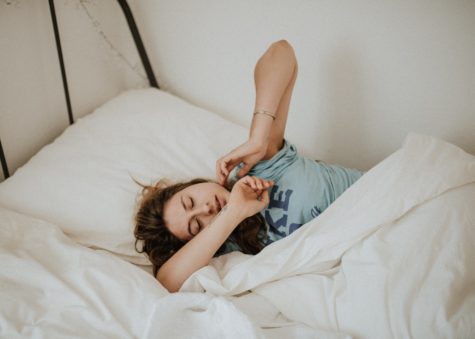WACO, Texas — Think you can play games with your sleep cycles and win? Think again!
Researchers at Baylor University suspected that students in studio-oriented majors might be sacrificing regular sleep for the sake of artistic insights in the night. Students in creative majors with multiple deadlines may believe that “sleep deprivation is almost a badge of honor,” says lead author Elise King, assistant professor of interior design in Baylor’s Robbins College of Health and Human Sciences.

Researchers decided to test this idea by studying the sleep habits of 28 interior design students. Their findings: losing sleep on some nights to complete projects then binge-sleeping on other nights to make up for lost sleep has a negative impact on both focus and creativity.
Students wore devices similar to Fitbits that tracked movement and sleep disturbances. They were tasked with keeping daily sleep diaries, where they estimated both the quantity and quality of their sleep. They were also tested on the first and last days of the study for creativity and executive attention.
Only one of the students in the study regularly slept the seven to nine hours recommended for young adults by the National Sleep Foundation. Researchers found that students tended to think they were sleeping more than they actually were. The reality is that most of the students (79 percent) were missing out on the minimum seven hours about half the time.
“The more variability they showed in their night-to-night sleep, the worse their cognition declined across the week,” explains study co-author Michael Scullin, Ph.D., director of Baylor’s Sleep Neuroscience and Cognition Laboratory, in a university release.
Though some may believe creativity is at its best in the middle of the night, researchers have come up with quite opposite results. “Consistent habits are at least as important as total length of sleep,” says Scullin.
Researchers would like to use these methods to test students in other universities who are in studio-based majors, such as art, architecture and graphic design.
The study of interior design students was published online in April in the Journal of Interior Design.

Comments
Comments are closed.